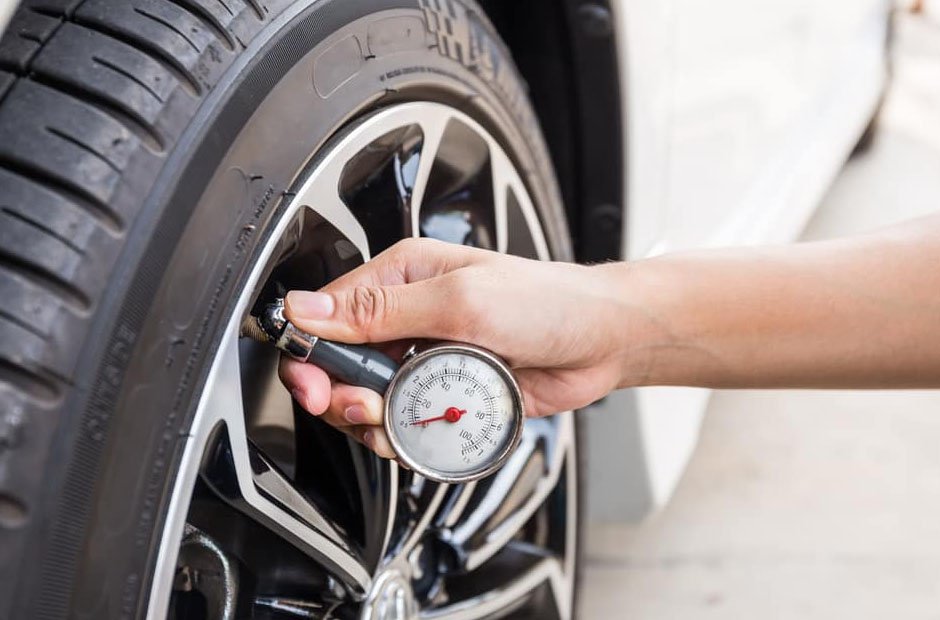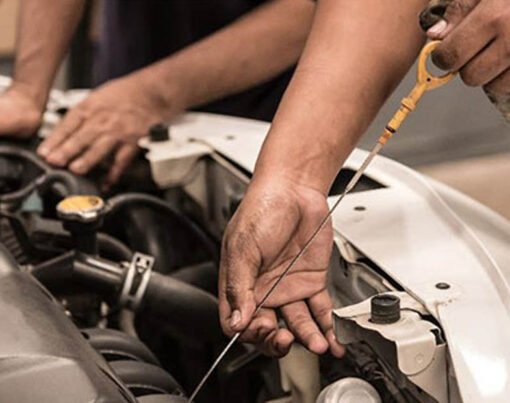Tyre pressure testing is one of the essential maintenance practices for any vehicle. It ensures that the tyres are always inflated to the manufacturer’s recommended pressure, which significantly affects the performance and safety of the vehicle. When it comes to fleet vehicles, regular tyre pressure testing is even more crucial as they are used more frequently and cover longer distances.
So in this blog post, we’ll let you in on the importance of regular tyre pressure testing for fleet vehicles, how often it should be done, the benefits of doing it, the consequences of neglecting it, and more.
Table of Contents
Why is regular tyre pressure testing important?
Maintaining the correct tyre pressure is vital for optimal vehicle performance, fuel efficiency, and safety. Underinflated tyres are one of the most significant causes of accidents, leading to decreased traction, increased stopping distance, and poor handling. On the other hand, overinflated tyres can result in reduced ride comfort, increased wear and tear, and decreased tyre lifespan. Car tyre experts from Lamby Automotive Performance will attest that regular tyre pressure testing helps ensure that the tyres are inflated to the right pressure, providing a better driving experience, improving fuel economy, and reducing the risk of accidents.
How often should fleet vehicles undergo tyre pressure testing?
The recommended frequency of tyre pressure testing for fleet vehicles varies depending on the type of vehicle, its usage, and the driving conditions. For example, heavy-duty vehicles that cover long distances regularly may require more frequent testing than light-duty vehicles. Fleet managers should refer to the manufacturer’s recommendations on the ideal tyre pressure for each vehicle and the frequency of testing. But as a general rule, fleet vehicles should undergo tyre pressure testing at least once a month.
What are the consequences of neglecting tyre pressure testing for fleet vehicles?
The consequences of neglecting tyre pressure testing for fleet vehicles can be significant. First, underinflated tyres can cause uneven tyre wear, which can lead to reduced tyre lifespan and replacement costs. Second, they can also lead to decreased fuel efficiency, which translates to increased operating costs. Third, they can also increase the risk of accidents, which could lead to increased insurance premiums and legal costs. And finally, neglecting tyre pressure testing can result in costly vehicle breakdowns and repairs, leading to downtime and decreased productivity.
What are the benefits of regular tyre pressure testing for fleet vehicles?
Regular tyre pressure testing is essential for fleet vehicles, as it has several benefits that can significantly impact the operation’s efficiency and safety.
Firstly, properly inflated tyres can improve fuel efficiency and lower operating costs. Rolling resistance, which is the force required to move a vehicle’s wheels on the road surface, increases when tyre pressure is too low. This means the engine needs to work harder to overcome the resistance, resulting in increased fuel consumption.
Secondly, regular tyre pressure testing can enhance safety by improving vehicle handling, reducing stopping distance, and enhancing traction. Underinflated tyres can affect a vehicle’s handling, making it more difficult to control and increasing the risk of accidents. Correct tyre pressure ensures that vehicles have optimal handling and braking performance, making it easier to avoid collisions and stop safely in emergencies.
Finally, regular tyre pressure testing helps identify and fix underinflation issues, which can lead to reduced tyre lifespan, resulting in decreased replacement costs. Underinflated tyres wear out more quickly than properly inflated ones, which means they need to be replaced more frequently.
How can fleet managers ensure regular tyre pressure testing?
Fleet managers have a significant responsibility to ensure that their vehicles are safe and well-maintained. And there are several benefits to regular tyre pressure testing, including improved fuel efficiency, enhanced safety, longer tyre lifespan, and reduced downtime. However, ensuring regular tyre pressure testing is not always an easy task. Here are some ways that fleet managers can make sure their vehicles receive regular tyre pressure testing:
One effective way to ensure regular tyre pressure testing is to implement a tyre pressure monitoring system. This system alerts drivers and fleet managers when tyre pressure is low, ensuring that tyre pressure issues are detected and addressed promptly. By detecting tyre pressure issues early, fleet managers can prevent costly repairs and breakdowns, reducing downtime and increasing productivity.
Another way to ensure regular tyre pressure testing is to train drivers to monitor tyre pressure regularly. Drivers are the first line of defence when it comes to identifying tyre pressure issues. Fleet managers should train their drivers to monitor tyre pressure regularly and notify fleet managers when issues arise. This can help ensure that tyre pressure issues are detected and addressed promptly.
Fleet managers should also schedule regular tyre pressure testing and maintenance at a suitable interval to ensure that tyres are always inflated to the manufacturer’s recommended pressure. Regular tyre pressure testing helps identify and fix underinflation issues, which can lead to reduced tyre lifespan, resulting in decreased replacement costs. It helps improve fuel efficiency, lower operating costs, and enhance safety by improving vehicle handling, reducing stopping distance, and enhancing traction.
However, despite the best efforts of fleet managers to ensure regular maintenance and testing, unexpected breakdowns can still occur. This is where reliable car mechanic and mobile mechanic services come in. It is crucial to have access to a reliable car mechanic service when everything goes wrong. Experienced mobile mechanics can diagnose and repair various mechanical issues, ranging from minor repairs such as fixing punctured tyres to major engine repairs. They have the tools, knowledge, and expertise needed to get fleet vehicles back on the road quickly and safely, minimizing downtime and increasing productivity.
Conclusion
Regular tyre pressure testing is an essential maintenance practice that fleet managers must prioritize to ensure their vehicles operate efficiently and safely. Neglecting this can lead to decreased fuel efficiency, reduced tyre lifespan, increased operating costs, and higher insurance premiums due to the risk of accidents. The importance of regular tyre pressure testing cannot be overstated as it directly impacts safety. So fleet managers must make sure that every vehicle they dispatch is well-maintained, including monitoring tyre pressure. Fleet managers must take action every day and make tyre pressure testing a priority in their fleet maintenance plan to enhance safety and prevent costly issues down the road.










